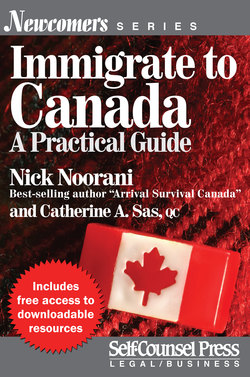Читать книгу Immigrate to Canada - Nick Noorani - Страница 8
На сайте Литреса книга снята с продажи.
2.1 Language barriers and soft skills
ОглавлениеWhen I immigrated to Canada, I had a distinct advantage as English was my first language. I went to a good private school so my basic grounding in grammar and writing skills stood me in good stead. However, I spoke a different dialect of English when I arrived in Canada. I now speak Canadian English. There are several words we pronounce differently in India because of the obvious British influence.
From the time I started on this roller coaster journey working with immigrants 15 years ago, I saw that language (or lack thereof) was the single largest barrier for immigrants. I met with engineers, accountants, human resources specialists, among others. Yes, they “spoke” English, but not at the level that their professions needed. When an employer had to choose between a native English or French speaker and someone who obviously struggled with the language, no prizes for guessing who won!
However, it wasn’t just about the language skills. It expanded to soft skills. Research showed that Canadian employers wanted more soft skills than technical skills as the latter people always picked up on the job. A research study conducted some years ago between immigrants and Canadian employers showed a marked disconnect in how employers view immigrants and vice versa. While an overwhelming majority of employers found language skills and soft skills were a barrier for immigrants in the workplace, immigrants did not see this as a problem!
“Soft skills” is a term you will hear quite often in Canada. What does it mean? To help define it, let’s first look at the term with the opposite meaning, “hard skills.” Hard skills are all the technical know-how, credentials, and experience you have in your field of expertise. For example, if you’re a chef, your hard skills are cooking, know-how with kitchen equipment, and so on. An employer looking for an experienced chef will want to know the candidate’s abilities in the kitchen, where he or she studied and trained, and any other important credentials.
What would the chef’s soft skills be? They are all the intangible qualities that aren’t as quantifiable. For example, how does the chef work in a team? Does he or she have good leadership skills? Is he or she organized, dependable, punctual, and friendly? When we are talking about immigrant soft skills, perhaps the most important question is: Can he or she communicate well in English? Unfortunately, many immigrants don’t fully understand or want to accept the importance of soft skills in getting ahead in Canada.
My suggestion is to read about developing soft skills or download it for free on the Prepare for Canada website (http://www.prepareforcanada.com/working/nine-soft-skills/nine-soft-skills-no-immigrant-should-be-without/). Note that you will need to sign up as a member to get this and more valuable information.
